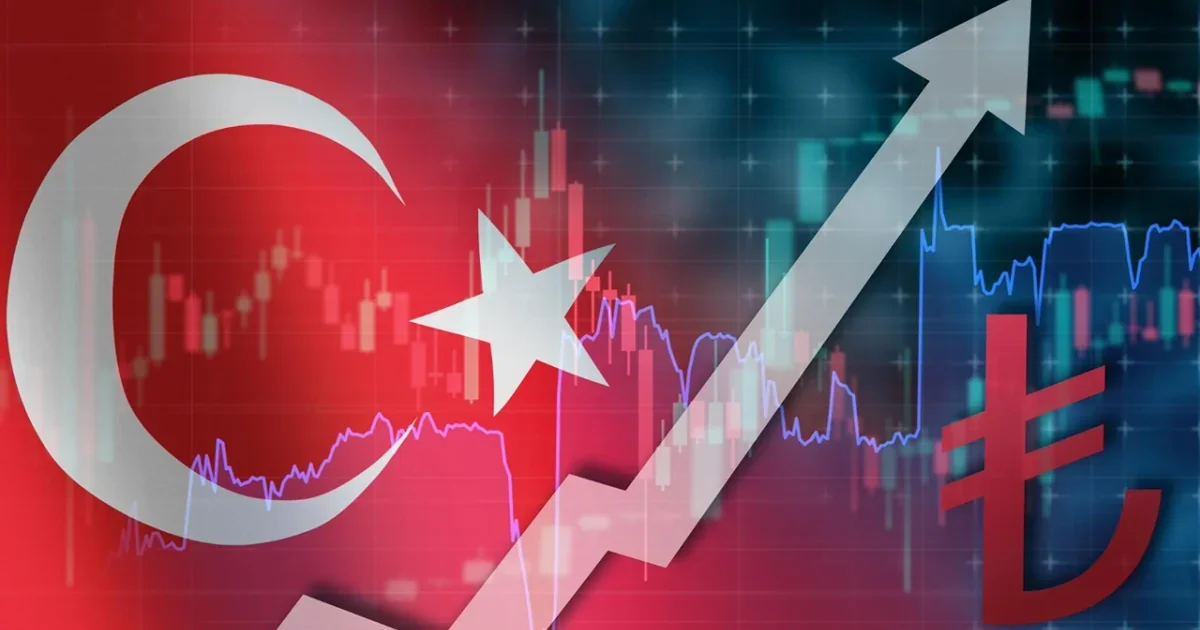Turkey’s 2025 Economic Program: How Will It Affect Inflation, the Lira, and the Real Estate Market?
November 13, 2025
Local and foreign investors are watching the Turkish scene closely. With the announcement of the new Turkish economic program (known as the Medium-Term Program, OVP), attention has turned to its architect, the Minister of Treasury and Finance, Mr. Mehmet Şimşek. The new program is the strictest in years and places one goal above all else: crush inflation and restore stability.
For investors in the real estate market, this is not just passing economic news; it is a turning point that could change the rules of the game. The most important question is no longer “Will the program succeed?” but rather “What does the success or failure of this program mean for my real estate investments?”
In this detailed analysis, we at “Skyline Real Estate” provide a clear, data-driven view that moves from “what” to “what it means for you.”
The 5 most important points in the new Turkish economic program
If you don’t have time to read the full analysis, here are the top 5 points every investor should know:
- The supreme objective: reducing inflation. The target is to bring inflation back to single digits (below 10%) by 2027 through a tight monetary policy (high interest rates) enforced rigorously by the Central Bank of the Republic of Türkiye (TCMB).
- Fiscal discipline: no more unplanned government spending. The program aims to lower the budget deficit by increasing spending efficiency and revising the tax system, supporting the central bank’s efforts.
- Lira stability: the goal is not to “artificially raise” the lira’s value, but to “stabilize” it and reduce sharp volatility to attract long-term foreign direct investment (FDI).
- Structural reforms: improving the business environment, boosting productivity, and committing to international standards to strengthen investor confidence.
- Immediate real estate impact: expectations of a slowdown in domestic demand for property due to tight credit (as a result of higher rates), versus stabilization of USD-denominated prices—changing market dynamics.
What is Türkiye’s Medium-Term Program (OVP) 2025–2027?
The new Turkish economic program—officially the “Medium-Term Program” (Orta Vadeli Program – OVP)—is a three-year economic roadmap (2025–2027). Led by Finance Minister Mehmet Şimşek and his team, the program marks a strong return to “rational and orthodox” economic policies.
The program rests on three main pillars:
- Monetary policy: (TCMB’s role) using interest rates as the primary tool to rein in inflation.
- Fiscal discipline: (Ministry of Finance’s role) controlling government spending to reduce the deficit.
- Structural reforms: (the government as a whole) updating laws to improve the investment climate.
The key difference from previous programs is clear: the focus has shifted from “growth at any cost” (which fed inflation) to “stability and rational expectations” as the top priority.
Numeric targets of the program: inflation, growth, and the lira
To gauge the program’s seriousness, look at the numbers. These are the official targets announced by the government and pursued by all state institutions, including the TCMB.
| Economic indicator | 2024 | 2025 (proj.) | 2026 (proj.) | 2027 (proj.) |
|---|---|---|---|---|
| Inflation rate (year-end) | 65.0% | 33.0% | 15.2% | 8.5% |
| GDP growth | 4.4% | 4.0% | 4.5% | 5.0% |
| Current account balance (of GDP) | -4.0% | -3.1% | -2.6% | -2.3% |
| Unemployment | 10.1% | 9.8% | 9.2% | 8.7% |
*Source: figures are based on official targets released by the Ministry of Treasury and Finance (T.C. Hazine ve Maliye Bakanlığı) in September 2025.
Macroeconomic impact analysis: the fight over inflation and interest rates
These targets are not just numbers; they are a compass for major investment decisions.
High interest policy: will it succeed in curbing inflation?
Yes—that is the aim. The TCMB is raising interest rates to make borrowing more expensive. This “cools” demand in the economy and encourages saving in lira, reducing pressure on prices. Data from the Turkish Statistical Institute (TÜİK) shows inflation has begun to slow, but there is still a long way to reach the 2025 targets.
Turkish lira outlook for 2025: is the era of sharp volatility over?
One of foreign investors’ biggest concerns is lira volatility. The current program—backed by restored confidence and higher FX reserves—does not seek a “suddenly stronger” lira, but a “stable” one with more predictable moves. For real estate investors, that stability matters more than any abrupt appreciation.
Foreign direct investment (FDI):
The program is designed to send a clear message to the world: “Türkiye is a safe, reliable destination for long-term investment.” This differs from short-term “hot money.” The return of FDI—especially in technology and industry—will create jobs and support the macroeconomy, which in turn benefits real estate over the long run.
What matters most to investors: the program’s impact on Türkiye’s real estate market in 2025
Here lies the core of our analysis: how do these top-down policies translate into real market conditions?
1. Financing costs: the impact of higher rates on home loans
This is the most obvious effect: with high interest rates, mortgages have become very costly for local buyers.
- Result: a sharp slowdown in domestic demand (from Turks reliant on credit). This pressures sellers and caps price increases in lira terms.
2. USD-denominated property prices: will lira stability bring market stability?
This is crucial. In recent years, lira depreciation meant Turkish property became “very cheap” for dollar holders (a discount on top of a discount).
- Analysis: with expected lira stability, that exchange-rate “discount” fades. USD-priced real estate is likely to find a solid floor and stabilize. In other words, the “ultra-low USD entry window” may be closing.
3. Foreign vs. domestic demand:
We are seeing a shift in buyer profiles:
- Local buyers: retrenching due to expensive financing.
- Foreign buyers (investors): returning strongly. Why? Because “stability” is the number-one factor they seek. Many prefer buying a $200,000 home in a stable market over a $180,000 home in a turbulent one.
- This boosts demand in areas favored by foreigners—whether luxury districts like Bebek and Maslak with Bosphorus views, or modern residential complexes in areas such as Beylikdüzü and Kayasehir.
4. Construction costs and inflation:
As inflation (the program’s main target) comes down, input costs—cement, steel—should finally stabilize. This gives developers better pricing visibility for future projects and reduces the risk of “project stoppages” seen previously.
5. The rental market:
Here lies a golden opportunity for investors. If buying is hard for locals due to high rates, what’s the alternative? Renting.
- Result: a surge in rental demand. Combined with still-elevated inflation in 2025, rental yields are likely to remain very strong, making “buy-to-let” strategies highly attractive—especially in key areas like Üsküdar on Istanbul’s Asian side.
Opportunities and risks: is now the right time to buy property in Türkiye?
Based on this analysis, we see 2025 as the “year of the smart investor,” not the “year of the speculator.” Here is our summary of opportunities vs. risks:
Potential opportunities (why now?)
- Stabilizing USD prices: a chance to buy before the market fully prices in the new stability.
- Strong rental yields: rental demand is rising as local borrowing remains difficult.
- Renewed foreign investor confidence (FDI): entering now benefits from the upcoming wave of foreign demand.
- Commercial real estate: with FDI’s return, offices and retail could revive.
Risks to watch
- Recession risk: tighter policies could trigger a temporary slowdown affecting broad demand.
- Policy commitment: any political backtracking could reintroduce uncertainty.
- Potential property taxes: the government may raise taxes to improve the budget (fiscal discipline).
- Persistent inflation: if the central bank fails to tame inflation as planned, challenges will linger.
FAQ on the economic program and its impact
What is the new Turkish economic program for 2025?
It is the “Medium-Term Program (OVP),” a three-year plan (2025–2027) led by Finance Minister Mehmet Şimşek. It primarily aims to reduce inflation, achieve fiscal discipline, and stabilize the lira.
Will the program succeed in lowering inflation?
That is the main goal. The program has the necessary “political backing” and uses the right economic tools (high interest rates). Official projections target 33% in 2025 and around 8.5% by 2027.
How will the program affect the Turkish lira?
The goal is not to “artificially strengthen” the lira, but to “stabilize” it and reduce sharp swings. Stability is key to restoring foreign investor confidence.
Will property prices in Türkiye rise in 2025?
We expect a slowdown in domestic demand (due to higher rates), which caps lira-denominated price gains. But we expect stabilization in USD-denominated prices, ending the prior “discounts” caused by lira weakness.
Is now a good time to buy property in Türkiye?
Yes. We believe it is a “window of opportunity” for foreign investors buying in hard currency. They can benefit from stable USD pricing and strong rental yields before full confidence returns to the market.
What are the current risks to real estate investment in Türkiye?
Main risks include a possible temporary economic slowdown due to tight monetary policy and the potential introduction of new property taxes to raise state revenues under fiscal discipline.
How does ‘Skyline Real Estate’ help you invest under the new program?
At “Skyline Real Estate,” we don’t just sell properties—we provide deep economic analysis to help you decide correctly. Under the new program, the landscape is changing quickly, and your role as an investor is to adapt.
- We help you identify high-yield rental properties capable of outpacing inflation.
- We offer tailored advice for foreign investors aligned with the program’s goals—whether your aim is housing, pure investment, or even obtaining Turkish citizenship (we can guide you on the requirements and steps to obtain Turkish citizenship).
- We analyze each property’s opportunities and risks with you—not only by price, but by its position within the broader economic roadmap.
Contact our economic and real estate advisors today for a detailed review of your investment profile and how you can benefit from Türkiye’s new economic landscape in 2025.
Disclaimer: This analysis is provided as of 13 November 2025 and does not constitute direct investment advice. Figures and targets are based on official sources (the Ministry of Treasury and Finance and the Central Bank of the Republic of Türkiye) and may change. Investors should conduct their own research before making any decisions.
Keywords
What is your budget?
Recommended Articles

December 15, 2025
How to Choose the Right Property in the UAE? 2026 Investor Guide
How to choose the right property in the UAE for 2026. A comprehensive guide covering best areas, ROI calculation, and off-plan buying risks.

November 13, 2025
Turkey’s 2025 Economic Program: How Will It Affect Inflation, the Lira, and the Real Estate Market?
The new Turkish economic program: what it means for investors and how it will impact inflation, the lira, and real-estate investment opportunities in Turkey.

July 8, 2025
Modular vs. Traditional Construction: Speed, Cost, and Durability
A comparison of modular and traditional construction in terms of execution speed, project costs, and durability—essential insights for real‑estate investors.
